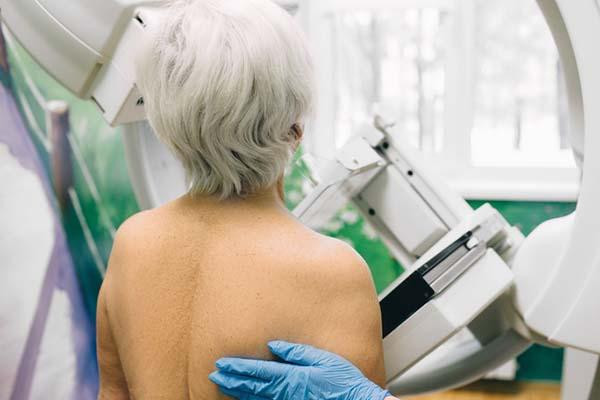
New thinking about plaque in arteries that feed the brain

Want to prevent shifting teeth? Maybe you need retainers

New evidence that polyphenol-rich foods help the heart

What you need to know about the new dietary guidelines

Food that’s healthier for people and planet can be cheaper, too

What are somatic workouts?

How to curb your stress eating

8 simple ways to reduce ultra-processed foods in your diet

How to spot Parkinson’s disease symptoms

Heart failure symptoms in women: How they’re different
Breast Cancer Archive
Articles
Risk-based breast screenings as effective as annual mammograms
A 2025 study suggests that adjusting the intensity of breast cancer screening based on individual risk factors is as effective as annual mammograms.
When can older women stop getting mammograms?
Mammogram screening guidelines for women 74 and older vary considerably. Randomized, controlled clinical trials have not examined the implications of screening mammograms in women 70 and older, and treating tumors unlikely to reduce life expectancy can harm women.
Navigating menopause after cancer
More than 10 million of the nation’s 19 million cancer survivors are women, 80% of whom are 60 or older. Cancer survivors going through menopause may not be able to use systemic hormone therapy if their cancer was hormone-driven, but other measures can provide symptom relief. These include various medications and lifestyle modifications such as cognitive behavioral therapy, meditation, acupuncture, and regular exercise. Some women who can’t use systemic hormone therapy may still try vaginal estrogen to ease vaginal dryness, some urinary symptoms, or painful sex.
Exercise may inhibit breast cancer growth
A 2025 study suggests that even a single session of resistance training or high-intensity interval training increases levels of certain proteins that can inhibit breast cancer cell growth, potentially contributing to a lower risk of recurrence.
Olive oil may reduce breast cancer risk
A 2025 study suggests that consuming more olive oil may lower women’s risk of developing breast cancer, especially certain more aggressive types.
Boosting breast cancer survival
Although a clinical trial showed daily aspirin use didn't help women with breast cancer avoid recurrence or improve survival, other evidence-backed measures might. Exercise, weight control, and a healthy diet are linked with lower recurrence and longer survival, but alcohol use, smoking, and supplement use are not. While it's not always clear how lifestyle approaches help lower the odds of recurrence or death from breast cancer, healthy measures can improve women's ability to keep other conditions at bay or manage them more effectively.
Risk factors for benign breast conditions identified
Adding ultrasound to mammography improves cancer detection rate
If it’s not breast cancer, should you worry?
Cancer report shows a mixed bag

New thinking about plaque in arteries that feed the brain

Want to prevent shifting teeth? Maybe you need retainers

New evidence that polyphenol-rich foods help the heart

What you need to know about the new dietary guidelines

Food that’s healthier for people and planet can be cheaper, too

What are somatic workouts?

How to curb your stress eating

8 simple ways to reduce ultra-processed foods in your diet

How to spot Parkinson’s disease symptoms

Heart failure symptoms in women: How they’re different
Free Healthbeat Signup
Get the latest in health news delivered to your inbox!
Sign Up











